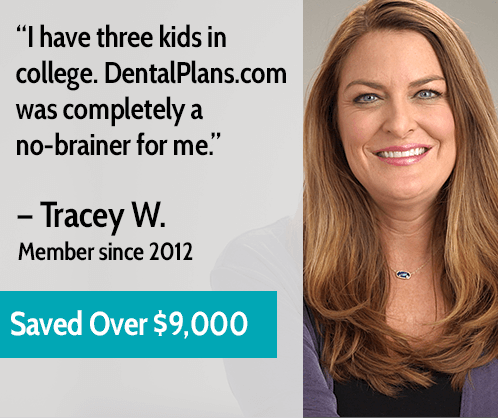“The greatest wealth is health.” – Virgil
The Rising Challenge of Health Insurance Premiums

Understanding the ACA Marketplace
The Affordable Care Act (ACA) has transformed the way individuals approach health insurance, but rising premiums are becoming a significant hurdle for many self-employed individuals. For those who do not qualify for subsidies, the costs can be daunting, detracting from the financial stability essential for running a business. In many cases, self-employed individuals may find themselves facing steep monthly premiums despite their best efforts to maintain a healthy profile. This situation underscores the need for careful research in selecting health insurance coverage that not only meets their healthcare needs but also aligns with their financial goals.
Navigating the ACA Marketplace
For individuals exploring health insurance options within the ACA marketplace, understanding how to navigate this system is crucial. Many find it difficult to decipher available plans and their associated costs. Rising premiums can feel like a barrier, leading many to question the sustainability of their healthcare options. Self-employed individuals must evaluate whether the plans available through the ACA will truly serve their needs or if alternative options might provide better coverage at a more manageable cost.

Private Health Insurance: A Viable Alternative
Get a hussle-free consultation
Attractiveness of Private Plans
For small business owners and self-employed professionals, private health insurance often emerges as an attractive alternative to ACA marketplace plans. These private plans can offer competitive premium rates and broader network options compared to ACA options, which may ultimately lead to better healthcare access. The flexibility and customization offered by private insurers can cater specifically to the needs of freelancers, independent contractors, and skilled workers while maintaining financial peace of mind.
Expanding Choices for Self-Employed Individuals
The flexibility provided by private health insurance allows self-employed individuals to choose plans that align with their unique healthcare needs. From selecting a preferred deductible to customizing out-of-pocket expenses, these choices can empower professionals to take control of their healthcare costs. By tailoring their insurance coverage, they can find plans that fit not just their health requirements, but also their budget, making it a compelling option in today’s market.

Customizing Health Insurance for Savings

Flexibility in Design Choices
Private insurance options also boast customizable features that can substantially mitigate overall healthcare costs. Self-employed individuals can select specific premiums, adjust deductibles, and set out-of-pocket limits that work best for their lifestyle and financial situation. This flexibility can help ensure that they only pay for the healthcare services they genuinely need, potentially leading to savings over time. By being proactive in selecting these features, self-employed individuals can develop a healthcare strategy that promotes long-term financial health.
Assessing the Total Cost of Care
It’s essential for self-employed individuals to analyze the total cost of healthcare, beyond just monthly premiums. This may involve calculating the cumulative effect of deductibles, copayments, and coinsurance when assessing a plan’s affordability. Through careful consideration of these factors, self-employed individuals can make wiser insurance choices that ensure adequate coverage while controlling costs. In this way, they can prioritize their long-term financial and health viability.

The Financial Impact on Self-Employed Individuals
Get a hussle-free consultation
Healthcare Costs and Financial Stress
Managing healthcare costs is an integral part of financial planning for anyone, but especially for self-employed individuals and small business owners. High healthcare expenses can lead to significant financial strain, impacting their overall well-being and business growth. By effectively managing these costs through appropriate insurance choices, self-employed professionals can alleviate financial burdens and focus more on their business and personal well-being. Financial security fosters peace of mind, which is absolutely critical for sustaining a successful business.
Investing in Better Health Outcomes
The connection between healthcare coverage and health outcomes is undeniable. When self-employed individuals are equipped with adequate and suitable health insurance, they are more likely to seek necessary healthcare services and preventive care. This proactive approach can lead to healthier lifestyles, reduced absenteeism, and ultimately, greater success in their business ventures. Investing in Health Insurance is an investment in long-term physical and emotional health, and that investment pays dividends over time.
Conclusion: Choosing Wisely for Health and Financial Security
The importance of selecting the right health insurance plan cannot be overstated, particularly for self-employed individuals. The right coverage can have a profound impact on both health and financial security, allowing individuals to focus on growth and stability in their personal and professional lives. As rising premiums in the ACA marketplace continue to challenge many, exploring private health insurance alternatives may prove beneficial. Understanding individual healthcare needs and customizing options available can significantly enhance financial well-being. For immediate assistance, **call or text (407) 588-0505** for expert advice and options tailored to your unique situation.
FAQs
1. What is the best health insurance option for self-employed individuals?
The best health insurance option will vary depending on individual needs, but private health insurance often provides flexibility and customization that can better suit the self-employed lifestyle compared to ACA marketplace plans.
2. Are there tax deductions for health insurance for self-employed people?
Yes, self-employed individuals can generally deduct health insurance premiums from their taxable income, which can help reduce their overall tax liability.
3. How can I lower my health insurance premiums?
One way to lower premiums is to choose a higher deductible plan or explore private health insurance options that offer better rates. Shopping around and getting quotes can also help identify more affordable plans.
4. What should I look for in a health insurance plan as a self-employed person?
Key considerations should include coverage options, premiums, deductibles, out-of-pocket maximums, and the availability of healthcare providers within the plan’s network.
5. Can I switch health insurance plans mid-year?
Yes, you can switch your health insurance plan outside of the Open Enrollment Period only if you qualify for a Special Enrollment Period due to life changes such as marriage, birth, or loss of other coverage.







0 Comments